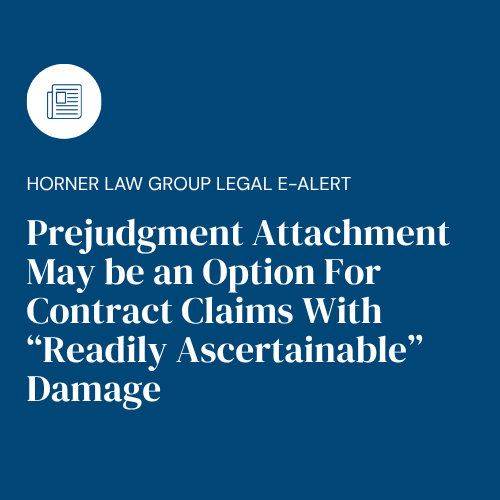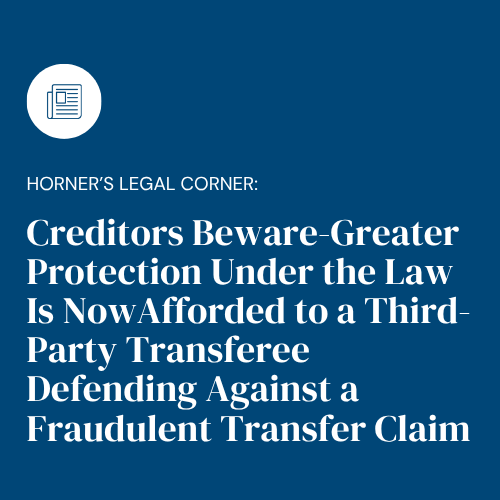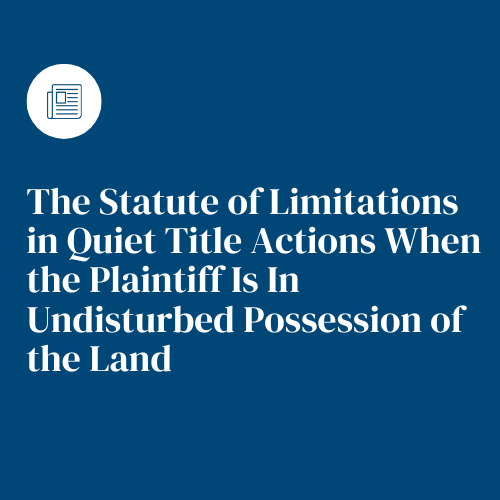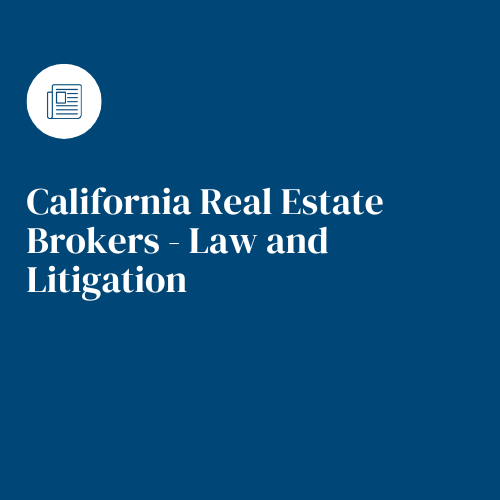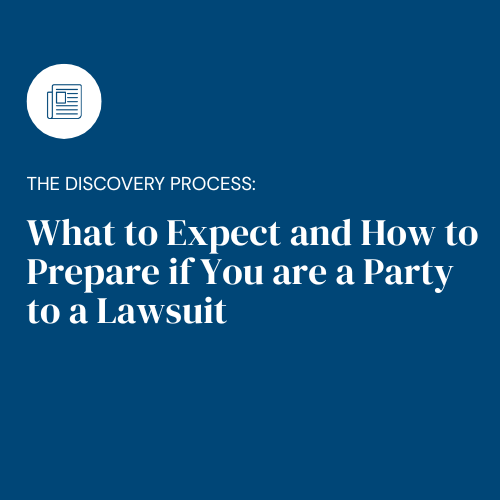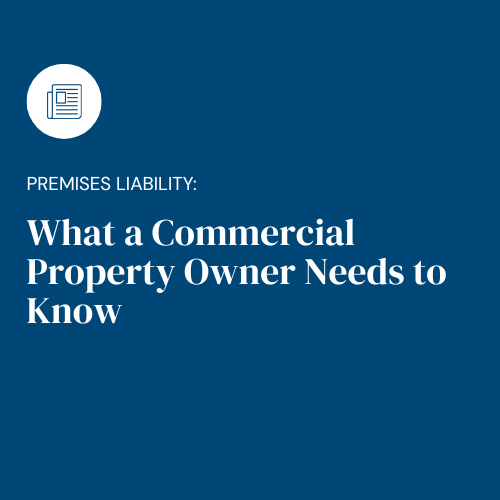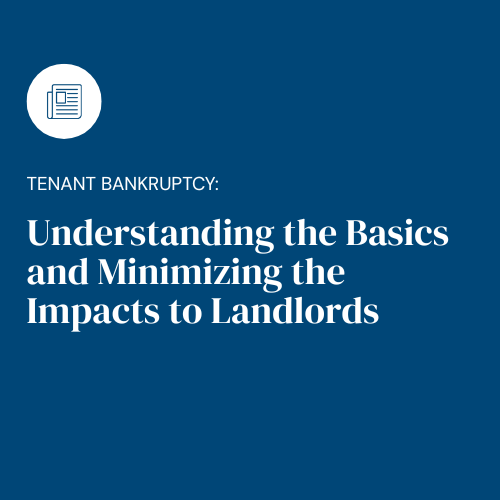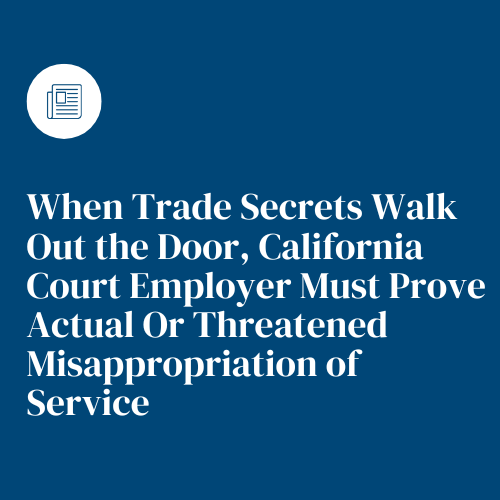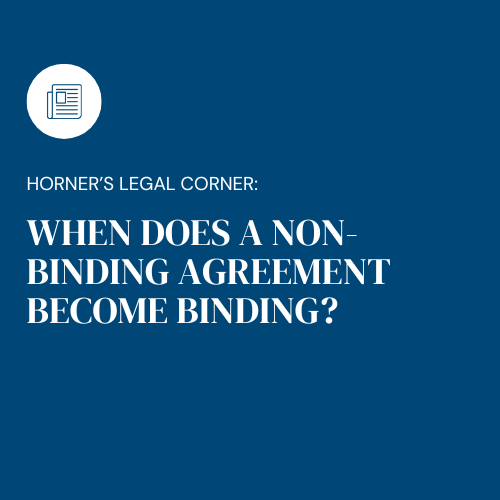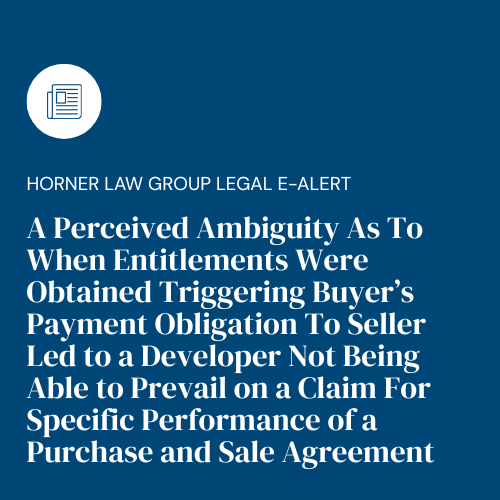The Discovery Process: What to Expect and How to Prepare if You are a Party to a Lawsuit
CONTACT
Cliff Horner
Email Address: chorner@hornerlawgroup.com
Author: Clifford R. Horner
Nearly every lawsuit involves some sort of discovery; the fact-finding process parties and their counsel engage in to move a case towards settlement or trial. The purpose of discovery is to remove the “surprise” element from trials by enabling parties to discover the evidence needed to evaluate and resolve the case.
Each party to a lawsuit has the right to conduct discovery. Although the right to discovery is not unlimited, it is liberally construed by the Courts to permit discovery whenever possible. Not surprisingly, the scope of “discoverable” matters is also quite broad.
The discovery procedures employed will depend on the facts of the case as well as the time and money the parties are willing or able to expend in pursuing their case. The purpose of this article is to identify and explain some of the discovery procedures most commonly utilized, and to provide some practical advice should you find yourself a party to a lawsuit and on the receiving end of discovery.
In anticipation of discovery, a meeting with your counsel should be scheduled to discuss the case and review all documents potentially relevant to the case. The documents will in many ways shape the entire lawsuit, becoming the evidence in the case and often the basis for the testimony of parties and other witnesses. The purpose of the meeting with counsel is to familiarize (or re-familiarize) yourself with the documents, with an eye towards what will be produced in the course of discovery. Do not overlook documents retained on your computer, including electronic mail.
Certain privileges or protections exist which protect some information from discovery. Keep these privileges and protections in mind during the pre-discovery meeting, as well as through the entire discovery process. Two of these protections are discussed below.
The Attorney-Client Privilege
To encourage effective preparation and full disclosure of information between attorneys and their clients, any confidential communications (written or oral) between a client and his or her counsel are protected from disclosure. Electronic communications (i.e. facsimile, telephone or electronic mail) between the client and counsel are also considered confidential and are therefore protected from disclosure.
If you are a party to a lawsuit, you should avoid discussing the case with anyone other than your attorney, as communications with others regarding the case are not protected from disclosure in the discovery process, even if your attorney is present during the discussion.
Attorneys' Work Product Protection
The work product protection or doctrine encourages attorneys to thoroughly prepare a case and investigate the favorable and unfavorable aspects of it without concern that their efforts, and the fruits of their efforts, may be disclosed to their adversaries. The work product protection is not a privilege and therefore does not receive absolute protection. Rather, attorneys' work product receives a qualified protection from discovery, meaning a court may order disclosure of information under certain circumstances. However, any writing (which is defined as any recorded information) is afforded absolute protection. The protection extends to the attorney's employees and agents (including investigators) as well.
Form Interrogatories
Form interrogatories are often propounded early in the litigation process. Interrogatories are simply written questions asked by one party to another party in the action, to which written answers under oath must be provided. The answers or responses may be used in evidence against the responding party. If the answering party is a corporation or other business entity, the interrogatories are directed at the entity itself. The entity must respond with information known to any of its officers or directors.
The term "form interrogatories" refers to Official Form Interrogatories that have been approved by the Judicial Council of California. There are "standard" form interrogatories that are used primarily in personal injury and contract actions, as well as more "specialized" form interrogatories, including those for unlawful detainer and economic litigation. Form interrogatories are often the first discovery procedure employed because they are easy to prepare (the attorney simply checks boxes next to the interrogatories he or she would like answered) and an effective way of obtaining background information about the party and the party's case. For example, although interrogatories cannot be used to compel the production of documents, they are an effective tool for requesting identification of documents which support your case.
If you are served with interrogatories, immediately contact your attorney and provide him or her with a copy of the interrogatories. In most cases, responses to interrogatories are due within 30 days from the date the interrogatories are served, although in unlawful detainer actions, responses are due within five days after service. Failure to respond to interrogatories within these time limits waives most objections to interrogatories.
Responding to interrogatories should be a collaborative effort between you and your counsel. A response to an interrogatory may be an answer, an objection, both or an election to allow inspection and copying of records. Your attorney will be responsible for raising appropriate objections, but may also help with the wording of answers. The method by which client and counsel will prepare interrogatory responses will vary from client to client and attorney to attorney. In some cases, it may be appropriate to meet face-to-face to go through each question and prepare a response. In other cases, your attorney may prepare draft responses based on the information in his or her file and ask you to review and edit and/or provide additional information not in the attorney's file. In yet other cases, your attorney may ask you to draft responses and provide them to the attorney to fill in any gaps and raise appropriate objections. In all cases, responses will be typed up and prepared in pleading form by your attorney's office. Your attorney will also prepare a verification for your signature. Interrogatory responses must be signed under oath by the party to whom they are directed.
The key to preparation of interrogatory responses is allowing adequate time for consultation between client and counsel and careful preparation of responses that are complete, but that also protect your interests and preserve all appropriate objections.
Special Interrogatories
Each party may propound 35 "specially prepared" interrogatories to every other party, in addition to Official Form Interrogatories. Unlike form interrogatories, special interrogatories are "specially prepared" by counsel for the party and seek information specific to the case. Some common uses of special interrogatories are to obtain additional information on responses provided to form interrogatories, to follow up on questions asked in deposition, or to obtain information about a party's contentions, including the facts and evidence on which the contentions are based. Special interrogatories designed to serve this purpose are sometimes referred to as "contention interrogatories."
The same rule applies if you are served with special interrogatories as with form interrogatories - contact your attorney immediately. Again, the method for preparing answers may vary depending on the case, the client and the attorney. As with responses to form interrogatories, your attorney's office will prepare your responses in a separate document. Responses to special interrogatories must also be accompanied by a verification signed under oath. Therefore, allowing enough time to prepare responses and preserve objections is critical. The time limits for response, discussed above, apply to special interrogatories as well as form interrogatories.
Requests for Admissions
Requests for admissions differ than other discovery procedures because they are rarely used to discover information. Rather, the main purpose of requests for admissions is to force a party to admit or deny the truth of a fact or the genuineness of a document. There is no limit on the number of requests for admissions regarding the genuineness of documents. However, any other requests for admissions are limited to 35.
Requests for admissions look very similar to special interrogatories, and consist of individual questions or "requests." You should treat requests for admissions just as you should interrogatories of any kind - contact your attorney immediately so that you can develop a plan to adequately respond to the requests for admissions in a timely manner. Responses to requests for admissions are due within 30 days from the date the interrogatories are served, although in unlawful detainer actions, responses are due within five days after service.
Failure to timely respond to requests for admissions results in waiver of all objections to the requests. An additional danger exists in failing to respond to requests for admissions. Upon motion of the opposing party, the court may order all matters specified in the requests for admissions "deemed admitted" for failure to provide any response within the time limit for response.
Each request for admission must be responded to with an answer or objection. However, unlike responses to interrogatories where answers can be explained, an answer to a request for admission must be one of three things: an admission, a denial or a statement that the party is unable to admit or deny the request (usually because the party does not have sufficient information to admit or deny). Like responses to interrogatories, responses to requests for admissions must be provided under oath.
Inspection Demands
A demand for inspection of documents or other physical evidence may be served upon any party to the action. This is the most frequently employed method to obtain documents from the opposing party. As previously stated, the documents often serve as the foundation for the case. Therefore, you should assume that documents will be requested from you and the opposing party in the course of litigation. “Document” is broadly defined and includes handwritten documents, typewritten documents, printed documents, photographs, drawings, graphs, charts, photographs, audio or video recordings and computer data.
The right to discovery of computer data is not limited to printed documents. In light of the fact that most businesses now create and maintain documents on computers and communicate via electronic mail, inspection demands that include demands for computer data are now commonplace. Not surprisingly, the means for obtaining computer data from a computer system, even data believed to be “deleted,” are quite sophisticated.
Even before being served with a demand for inspection of documents, you should be aware that documents located on network servers and backup units, hard drives, floppy disks and compact discs, laptops and backup tapes in storage are discoverable if relevant to the case. You should discuss data and storage procedures with your attorney. If you are not personally familiar with your computer data and how it is stored, you and your attorney should speak with your computer manager or network systems operator to learn about the procedures for storing and deleting computer files.
If a significant amount of time has elapsed and documents (written or computer) have been destroyed, you should discuss the documents that did exist and your policies regarding document retention and destruction at the pre-discovery meeting with your attorney.
The party demanding inspection of documents must specifically describe each item or each category of item sought to be inspected, and must provide a reasonable time for inspection at least 30 days after service of the demand and a reasonable place for the inspection. If the case is particularly document-intensive, 30 days is a very short timeline to organize your documents for inspection. Therefore, if you are served with an inspection demand for documents, you should contact your attorney immediately. A written response to a demand for inspection is required within 30 days after the demand is served, regardless of the inspection date set forth in the demand. The response must state whether the party will comply with the inspection on the date demanded. Your attorney will prepare this document on your behalf and raise the appropriate objections. Failure to object to an inspection demand within thirty days after service of demand waives the grounds for objection.
Demands for inspection of documents are sometimes called requests for production of documents. In practice, if a large amount of documents are to be produced, a time for inspection of the documents by counsel for the opposing party will be arranged and copies will be made of the documents that attorney wants. If a case is not particularly document-intensive, your attorney may elect to make copies of documents responsive to the demand and produce them to opposing counsel.
Frequently, demands are served for the inspection of land or other property of party. Procedurally, demands for inspection of land operate just like demands for inspection of documents, except that the opposing party inspects land instead of documents. Additionally, a party demanding the inspection of property may demand permission to measure, survey, test or photograph the property.
Depositions
A deposition is testimony taken under oath before trial. The testimony is preserved in a written record called a transcript. Depositions are perhaps the most intimidating form of discovery for parties to a lawsuit, because they involve a face-to-face question and answer session with opposing counsel. If you are the person being deposed, the attorney for your adversary will ask you questions. However, your attorney will also be present to “defend” you at your deposition.
A deposition may be taken of any person, including a nonparty. A deposition may also be taken of a corporation or other business entity, through the oral examination of an officer or agent on the entity’s behalf.
As with other forms of discovery, immediately contact your attorney if you are served with a notice of taking deposition. If the date on which your deposition was noticed is not convenient for you or your counsel, your attorney will make arrangements for your deposition to take place on another date. Additionally, your attorney will arrange a pre-deposition preparation conference.
At the pre-deposition conference, your attorney will sit down with you to discuss the deposition procedure. You may also review documents at your pre-deposition conference, especially if the notice of your deposition included a request for production of documents at the deposition.
At the pre-deposition conference, your attorney should explain that a deposition is taken under oath, which has the same force and effect as an oath taken in a court of law. In addition, your attorney should also explain that rules of conversation employed in every day life do not apply in the context of a deposition because the testimony is recorded by a court reporter. Therefore, even if you anticipate a question, you should wait to respond until the question has been asked fully. Additionally, you must give oral answers to deposition questions, as gestures do not translate into a written record.
Your attorney should also explain that, in addition to being a means to obtaining testimony from an adverse party, depositions give attorneys and parties an opportunity to evaluate the likeability and credibility of their adversaries. Additionally, deposition testimony may be used for impeachment purposes at trial, whereby any inconsistencies in your testimony can be used against you at trial. Therefore, your attorney will likely advise you to listen carefully to the question posed and only answer the question posed. If a question as posed is sloppy, do not help opposing counsel by attempting to clarify the question. By the same token, if you do not understand a question, advise opposing counsel that you do not understand. If you answer the question as posed, it will be assumed that you understood the question. During the pre-deposition conference, your attorney will also explain that he or she will make objections on your behalf at the deposition as appropriate.
Conclusion
The key to effective management of discovery, whether you are on the giving or receiving end, is open communication with your counsel. In anticipation of discovery, discuss your case in depth, especially all documents, written or electronic, potentially relevant to your case. If you are served with any document during the litigation process, especially any document seeking discovery, contact your attorney immediately. This will assure that you do not miss any discovery deadlines (which can have a serious negative impact on your case) and assure that you put forth your best case in an organized fashion.
Subscribe to Horner Law Group Mailing Lists
Get the latest significant legal alerts, news, webinars, and insights that affect your industry.




